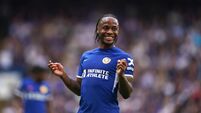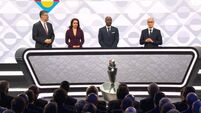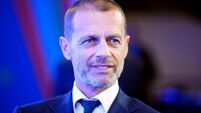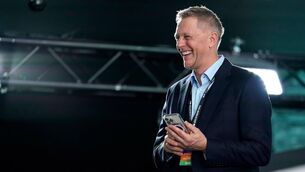Famous boys of ‘97 forged a special bond after bronze heroics at U20 World Championships

A garbled mass of excitable conversations sprinkled with deep laughter as they made their way through the lobby of the Gresham Hotel, down the stairs and towards the Trinity conference room nestled in a corner of the lower ground floor.
It sounded either like a stag party that had made a disastrous wrong turn or, as we had been promised, the squad of Republic of Ireland players who had shocked a nation 20 years ago when finishing third at the U20 World Championships in Malaysia under Brian Kerr.














